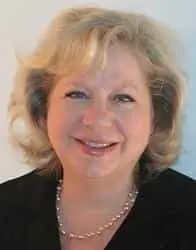
You may be familiar with the reverse mortgage option touted by Baby Boomer celebrities like Henry Winkler to help retirees stay in their homes, but did you know there’s a similar program to finance a home purchase?
Known as HECM (Home Equity Conversion Mortgage) for Purchase, this FHA-insured loan helps buyers age 62 and older finance their home purchase. The mortgage does not require principal and interest payments and is repaid when the home is sold.
“The HECM for Purchase program helps people downsize or move closer to their grandkids without spending all their cash,” says David Weinstein, a senior loan officer with Concord Mortgage Group. “There’s an estimated $7 trillion in home equity among people age 62 and older, so this program helps people use that equity.”
The program potentially provides a boost to retirement planning.
“People worry about outliving their retirement money,” says Rob Cooper, national director for builders and Realtors for the HECM for Purchase program with Reverse Mortgage Funding. “Borrowers can keep more of their cash as savings or to invest. At the same time, they don’t have to pay a mortgage, which lowers their spending.”
Generally, the HECM for Purchase program attracts cash buyers or those who hoped to pay cash but don’t have enough to buy the home they want.
Basics of HECM for Purchase
The average HECM for Purchase borrowers is 70.7 years, Cooper says.
HUD’s formula for the program requires a down payment ranging from 45 percent to 60 percent of the purchase price, depending on the age of the borrower, the interest rate and value of the home to be purchased. The older you are, the lower your down payment, says Weinstein.
For example, Cooper provides the following scenario: A couple who are both 70 nets $400,000 on the sale of their home and wants to purchase a $500,000 home. HUD rules require a down payment of about 50 percent. They can borrow $250,000 with a HECM for Purchase loan.
“This way they can keep $150,000 of their profit and they essentially bought a $500,000 home for $250,000,” says Cooper.
While this sounds too good to be true, it’s not. The other $250,000 is in the form of a mortgage that accrues interest during the years the couple owns the home and is repaid when they sell it or pass away.
“The secret sauce is the FHA insurance, because without it this program couldn’t exist,” says Chris Bruser, a Home Equity Retirement and HECM for Purchase Specialist with Retirement Funding Solutions based in the Tampa/St. Petersburg, Fla., area. “It’s a mortgage like any other, which gets repaid when the home is sold. The owners or their heirs will receive the profit from any leftover equity. The difference is that the FHA insurance is there just in case home values drop and there’s no equity left.”
Other important points about this loan program:
- At least one of the borrowers must be age 62 or older to participate
- The home must be a primary residence
- A financial assessment determines whether the borrowers are financially sound and have residual income after paying their bills. The amount required varies according to household size and region, generally from $550 to $1,300
- Borrowers and their heirs are never responsible for the difference if the loan balance is higher than the home value
- Buyers do not have to pay principal and interest on the loan
- Borrowers can make loan payments if they want to add to their equity
- Buyers must maintain their property, pay their property taxes, homeowner’s insurance and any homeowner association fees
One concern that borrowers have is what happens to their spouse if one homeowner passes away.
“HUD rules provide that the spouse of the HECM for Purchase borrower is allowed to stay in the house as long as it is used as a primary residence, even if that spouse was younger than 62 when the loan was taken out,” says Weinstein. “If the buyers are not married, both are protected by the program if they were both 62 or older when they bought the home. The only time the loan comes due before everyone has moved out is if the buyers weren’t married and the surviving person was younger than 62 when the house was purchased.”
New Rules Benefit New-Construction Buyers
HUD recently reduced the annual mortgage insurance fee from 1.25 percent of the loan balance to 0.5 percent and lowered the upfront mortgage insurance fee from 2.5 percent to 2 percent.
“The new HUD rules changed the formula for how much we can loan with a HECM for Purchase mortgage,” says Cooper. “Now borrowers have to make a bigger down payment. At the same time, the interest rates are lower and more competitive with traditional mortgage programs.”
Lower interest rates and fees, along with smaller loan amounts increase the likelihood of leftover equity after the loan is paid, says Cooper.
HUD also rescinded their Certificate of Occupancy requirement. In the past, a CO was required before a borrower could start their application for a HECM for Purchase loan. Now the application filed before construction is complete.
“The delay in the loan application meant that builders had to carry the costs for that house, often for an extra 30 days,” says Cooper. “Now this loan program is like any other.”
Future of HECM for Purchase
Weinstein says reverse mortgages are a niche product, with only about 60,000 reverse mortgages issued annually, including traditional reverse mortgages and purchase loans.
“About the only disadvantage would be for someone who plans to stay in their house for five years or so,” says Weinstein. “In that case, a traditional mortgage or cash might be the better solution since these loans are intended for long-term use and work best when the home has a long time to increase in value.”
Buying a home is an emotional decision and some people prefer to pay cash, says Bruser.
A HECM for Purchase loan is one more financial tool to explore when planning for your retirement.

Michele Lerner is an award-winning freelance writer, editor and author who has been writing about real estate, personal finance and business topics for more than two decades.
 A First-Time Buyers Guide to Understanding the Construction Loan Process
A First-Time Buyers Guide to Understanding the Construction Loan Process